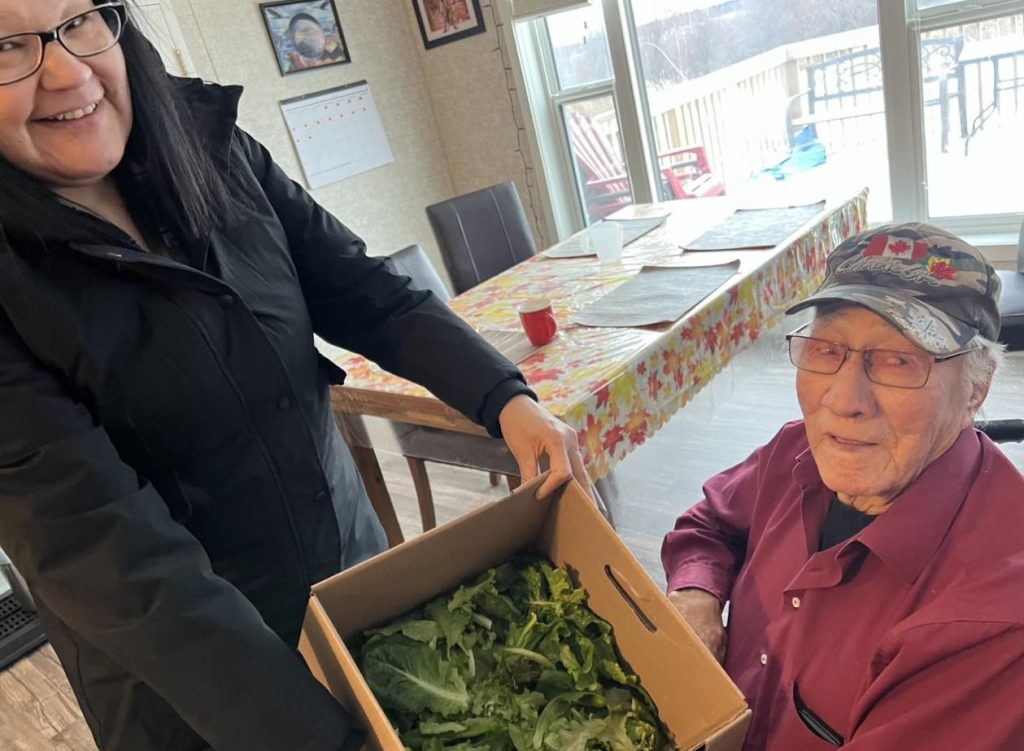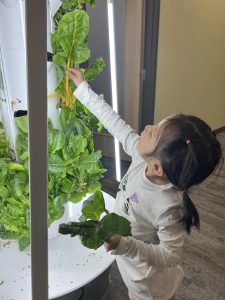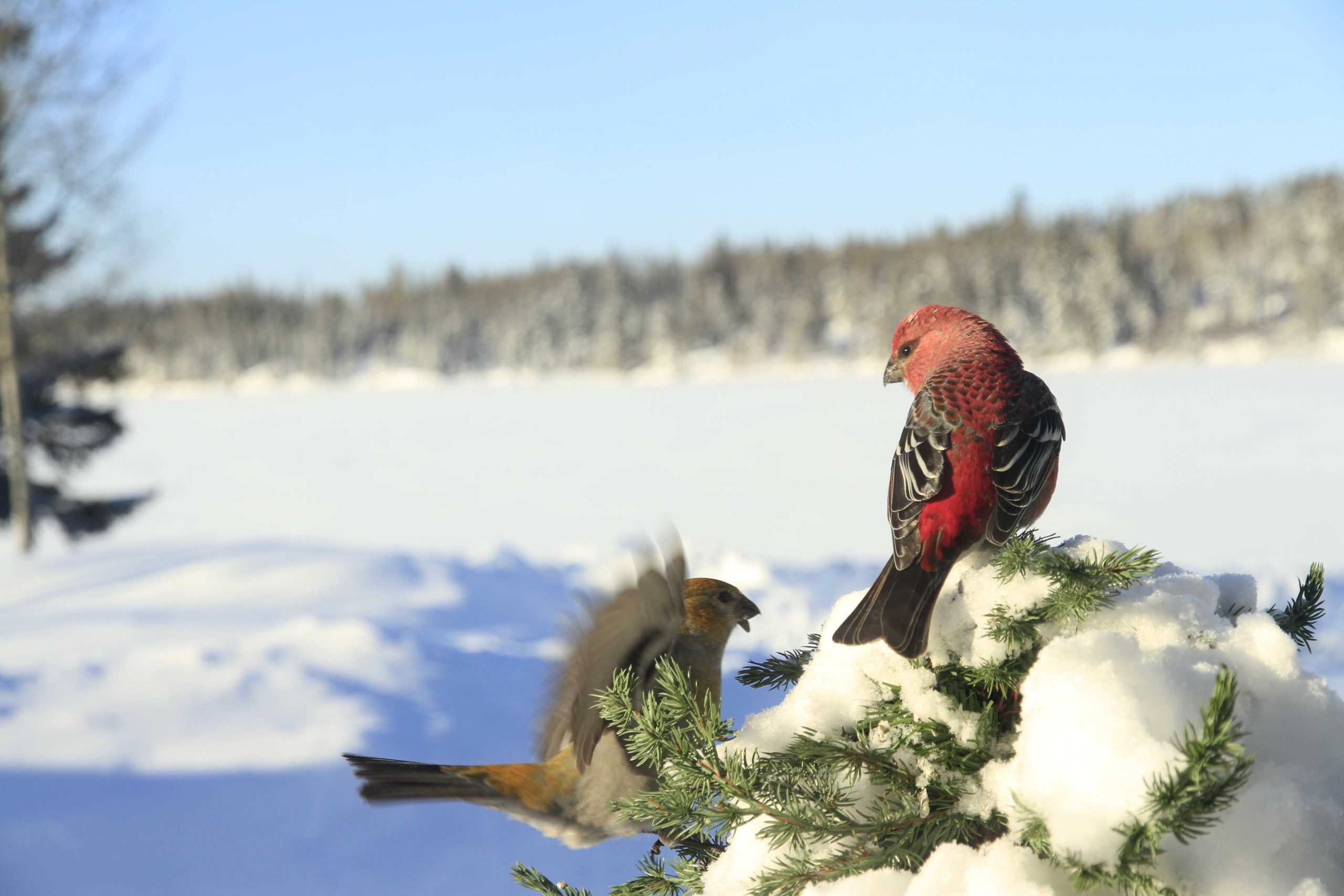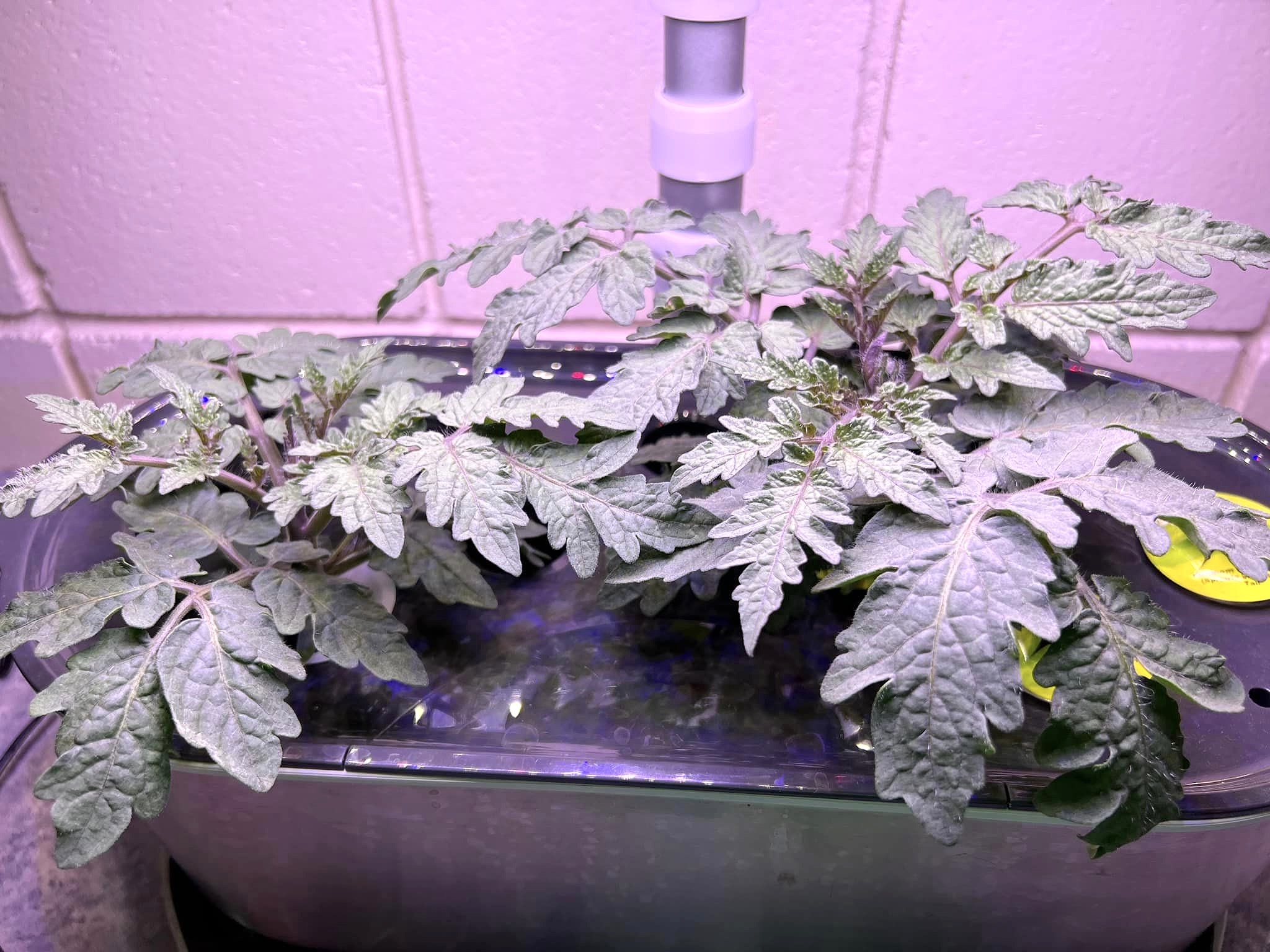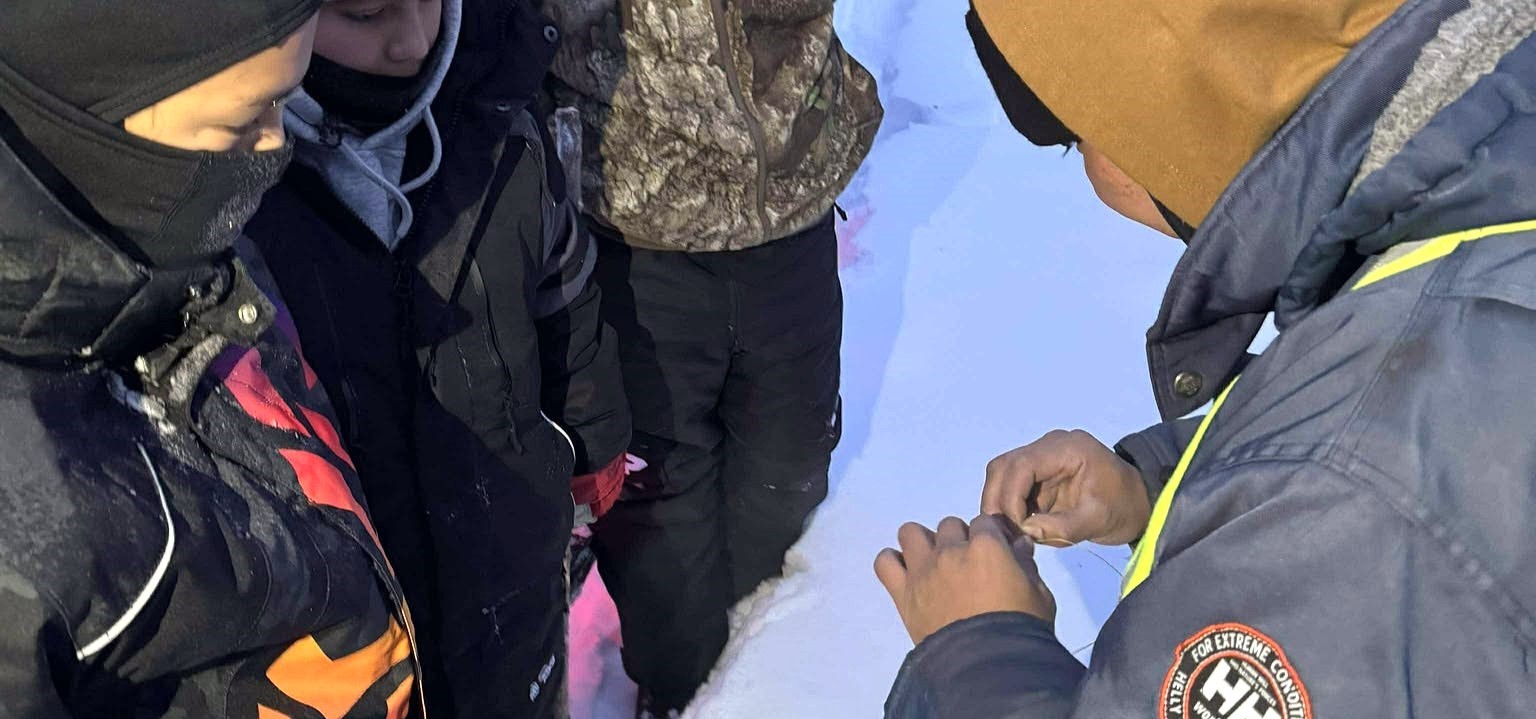Tataskweyak (Split Lake) school garden program provides access to healthy produce for students and community members.
By: Chantal Marie Schromeda
** All photos courtesy of Vivian Lin.
Before teachers even have the chance to open their classroom doors in the morning at Tataskweyak (Split Lake) school, they arrive to see students who are early – standing by the indoor school garden’s grow tower and lights.
Students marvel at the growing equipment giving life to colourful herbs, vegetables, and fruits sprouting and ripening for picking.
To see the children engaged and excited means the world to devoted teachers and community members Vivian Lin and Nackeisha Blake.
“It’s an awesome feeling,” says Blake.
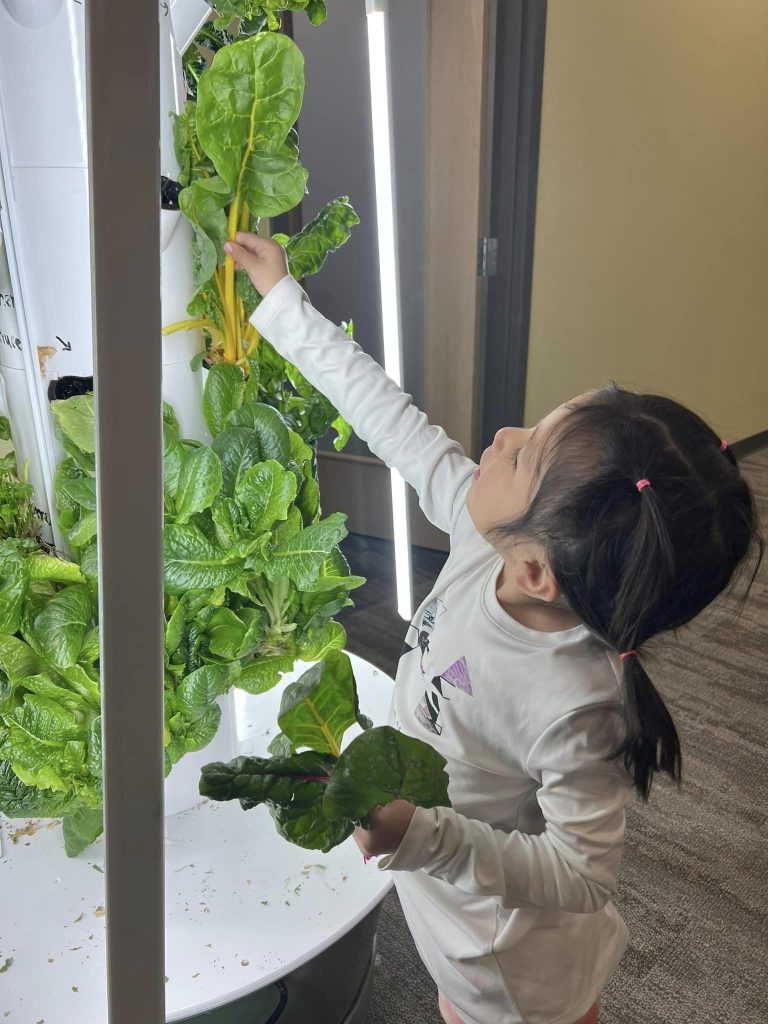
The consumption of vegetables in childhood is a necessary component for a child’s well being and development, but Lin says children in the North are not getting enough of them.
“Veggies should be eaten in meals everyday, but it’s not the same here,” says Lin. “Some students have never even tried tomatoes at home.”
Notoriously high prices for fresh produce in the North leave many students and community members without access to fruits and vegetables. While current government data for food costs in the North is lacking, the most recent statistics from 2011 show the average cost to fill a basket of food in the North for a family of four for the week is $419.11. In comparison, Dalhousie Canada’s Food Price Report of the same year shows the average weekly cost of a basket of food for four outside of the North is roughly $267.00 a week. Split Lake’s school garden program, supported by Food Matters Manitoba (FMM), is helping to change that.
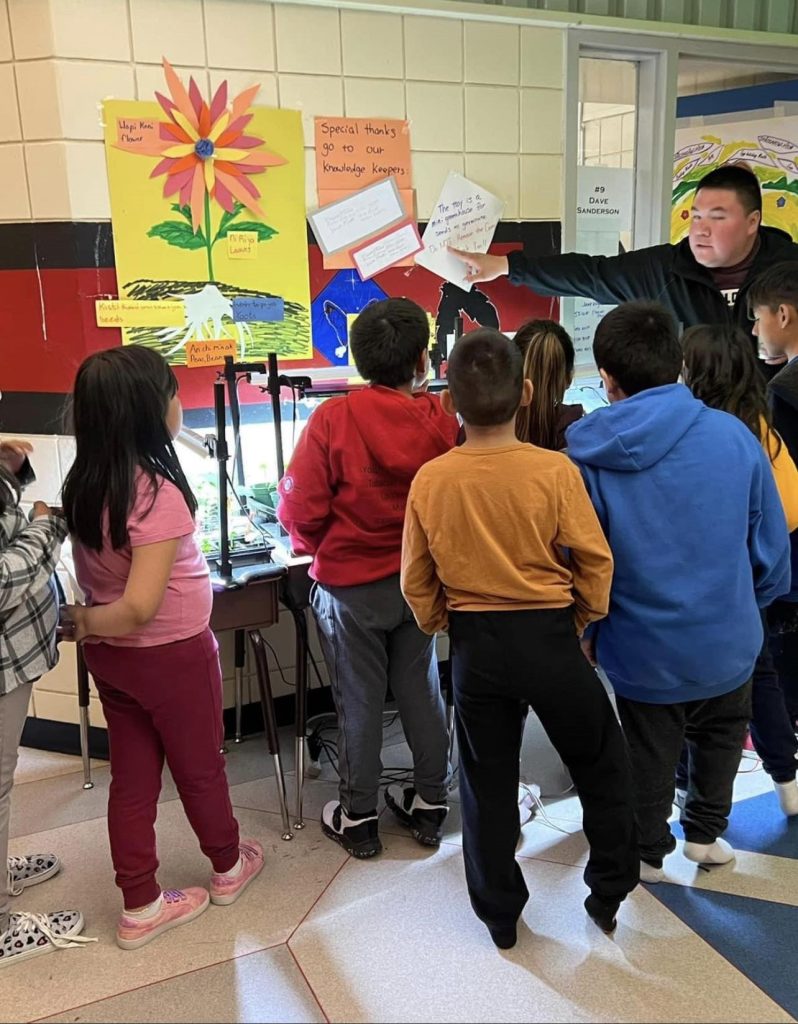
Every year FMM sends Lin supplies so she and fellow teachers may continue the garden project.
“We supply Vivian with almost anything she asks for,” says Morgan McCurdy, FMM’s Northern Facilitator. “Her commitment to the school gardening program goes above and beyond.”
FMM has sent seeds, grow lights, and is hoping to send another large order at some point this year, she adds.
With FMM’s support, the garden has been able to provide healthy foods for students and community members – rainbow chard, lettuce, dill, cilantro, basil, green onions, kale, tomatoes, strawberries, and an abundance of marigold flowers to name a few, are all on the bill. Many of the plants have sprouted in abundance, according to Lin and Blake.
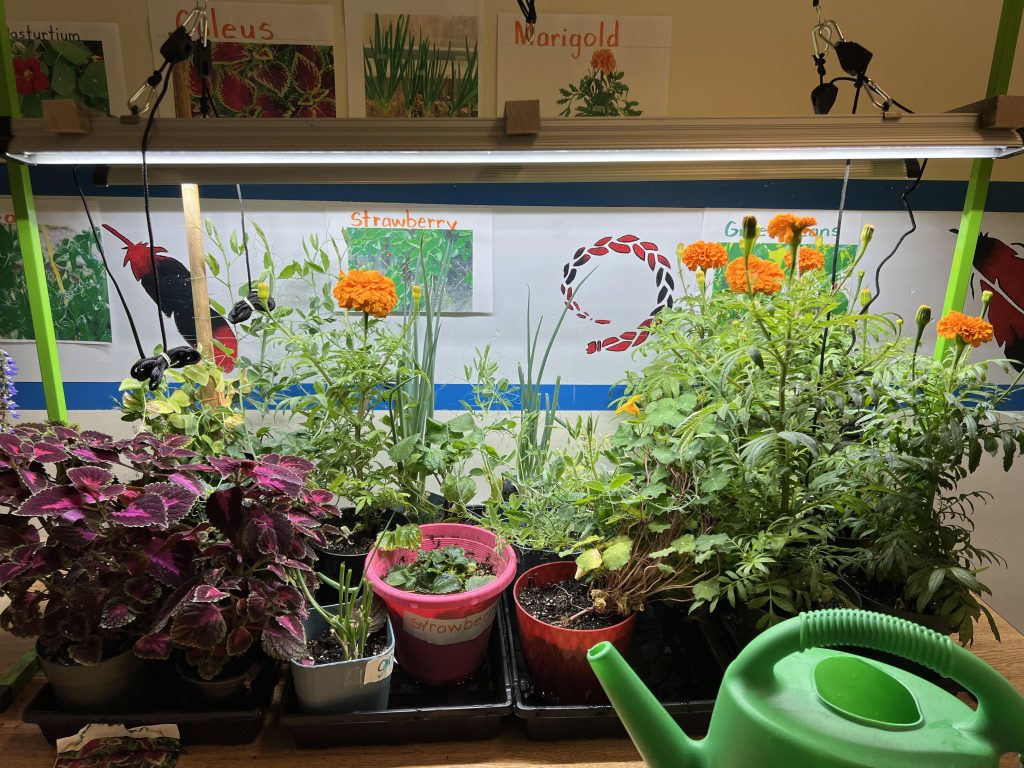
Seeing the evolution of food growing and being a part of that process was so new to students at first, explains Lin. “They were asking, ‘What is it? Oh really, are those tomatoes? Can I eat them?’”
While the majority of the gardening is taken care of by teachers, the students participate by picking up the vegetables, and checking on the progress of the vegetables and flowers – the youngest students showing the most initiative to take the time to water the plants, Lin notes.
Students’ involvement in garden programs is proven to encourage incorporating healthy habits into their daily routine through accessibility.
According to the Harvard University’s Graduate School of Education, gardens support and encourage healthy eating as a key component of children’s physical wellbeing – providing students with a first-hand look at how food grows. Additionally, school gardens provide students with the opportunity to shift their nutritional practices as it increases their access to healthy foods.
The teachers at Split Lake’s school play an essential role of mentor with the school garden – both in their direction on how to care for the growing plants, as well as how to actually incorporate the garden’s ingredients into appealing and nutritious meals.
“There are teachers who actually make salads for the kids from the fresh veggies and that’s pretty much a part of what they do, depending on how much we have,” says Blake. “Some teachers make salads for them and that’s a part of their class activity.”
Being able to see this network of mentorship and education is meaningful to Blake.
“For me it says you’re doing something of worth, the community is doing something of worth, and I think it’s really something to look forward to on a daily basis knowing the kids are able to be a part of it,” she says.
While the school’s garden program has been a success, the garden has been dealing with some pesky setbacks. Ever since coming back from Christmas vacation, Lin says there’s been a daily bug presence – aphids, thrips, and fungus to name a few, prompting Lin to take matters into her own hands.
“I’ve started counting how many bugs we catch everyday,” she laughs.
The garden’s field tomatoes and cucumbers have also been a challenge. “We tried the cucumbers – a hybrid variety, four of them,” says Lin. “They did so well for about a few weeks, the leaves were so good, everything was wonderful but then overnight they all died.”
Lin often shares her garden updates and bug perils on a Northern community circle Facebook page, where she receives community feedback and helpful growing tips. Her devotion to the school garden does not go unnoticed.
FMM Executive Director Demian Lawrenchuk, explains that while there is a great interest in garden programs across the North, the main challenge is finding someone to champion these projects – to keep them going long enough to become established and successful.
Lin has been at the forefront of the school garden project – driving its success with her commitment to the children and community of Split Lake for years, adds Lawrenchuk.
“Our goal is always to find and support these leaders on the ground for as long as possible, and empower them to have the greatest impact on their communities and the youth around them,” he says.
Lin’s commitment to the community is infectious.
“She’s more than just a teacher,” says Blake. “Vivian usually takes the veggies to different places in the community – to the older folks’ home, we take it to Jordan’s Principle, pretty much everywhere.”
For Blake, seeing that community network is inspiring.
“It’s not about you as an individual, it’s about that community spirit, and that’s what is the big thing for me – watching students and even community members come in to get what they need,” she says.
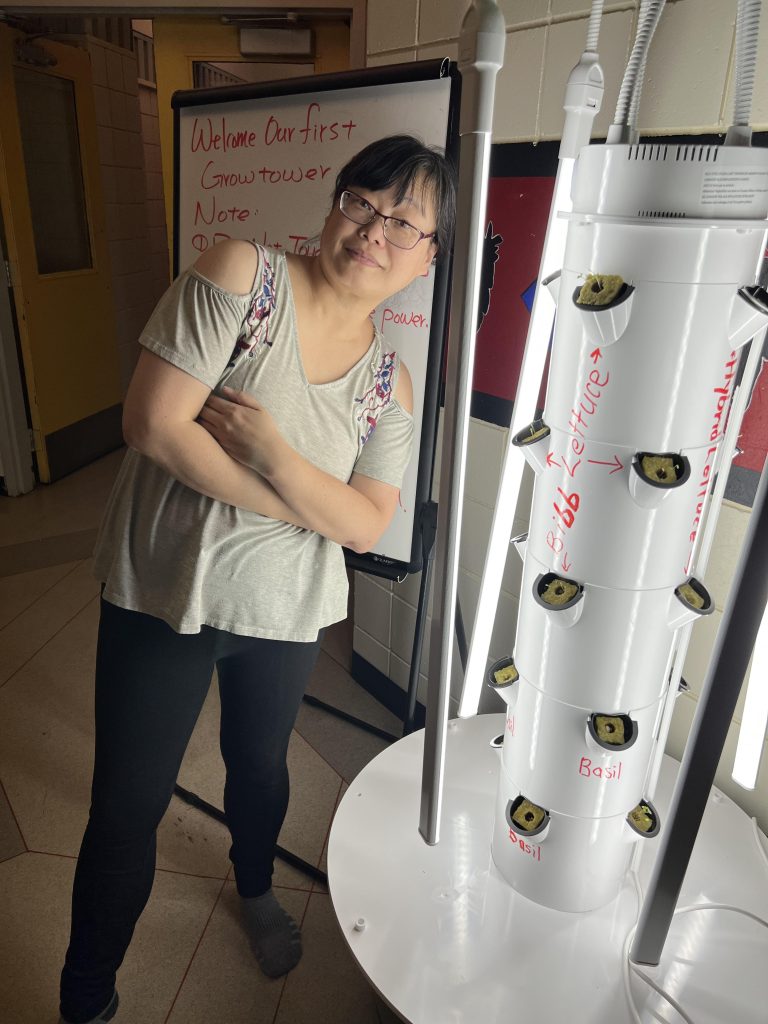
The school garden is an opportunity to not only educate, but an opportunity to foster a connection amongst community members and to the land – incorporating land based education in the children’s curriculum, explains Lin.
Lin and Blake believe that inspiration while young is key.
“We’re trying to give them some ideas, to inspire them – that’s the thing, to inspire them from an early age, and hoping to bring some changes into their lives,” says Lin.
Teachers hope that inspiration will spread to the rest of the community.

“There are lots of houses with a big front yard and backyard,” says Lin. “The community decides where the gardens will be, but people are not doing it anymore.”
With the tenacity of community members like Lin and the support from FMM, rejuvenation is possible – the school garden program is only the beginning.
Lin is hopeful that opportunities for further growth are just on the horizon.
“This is a chance to bring everything back,” she says.
